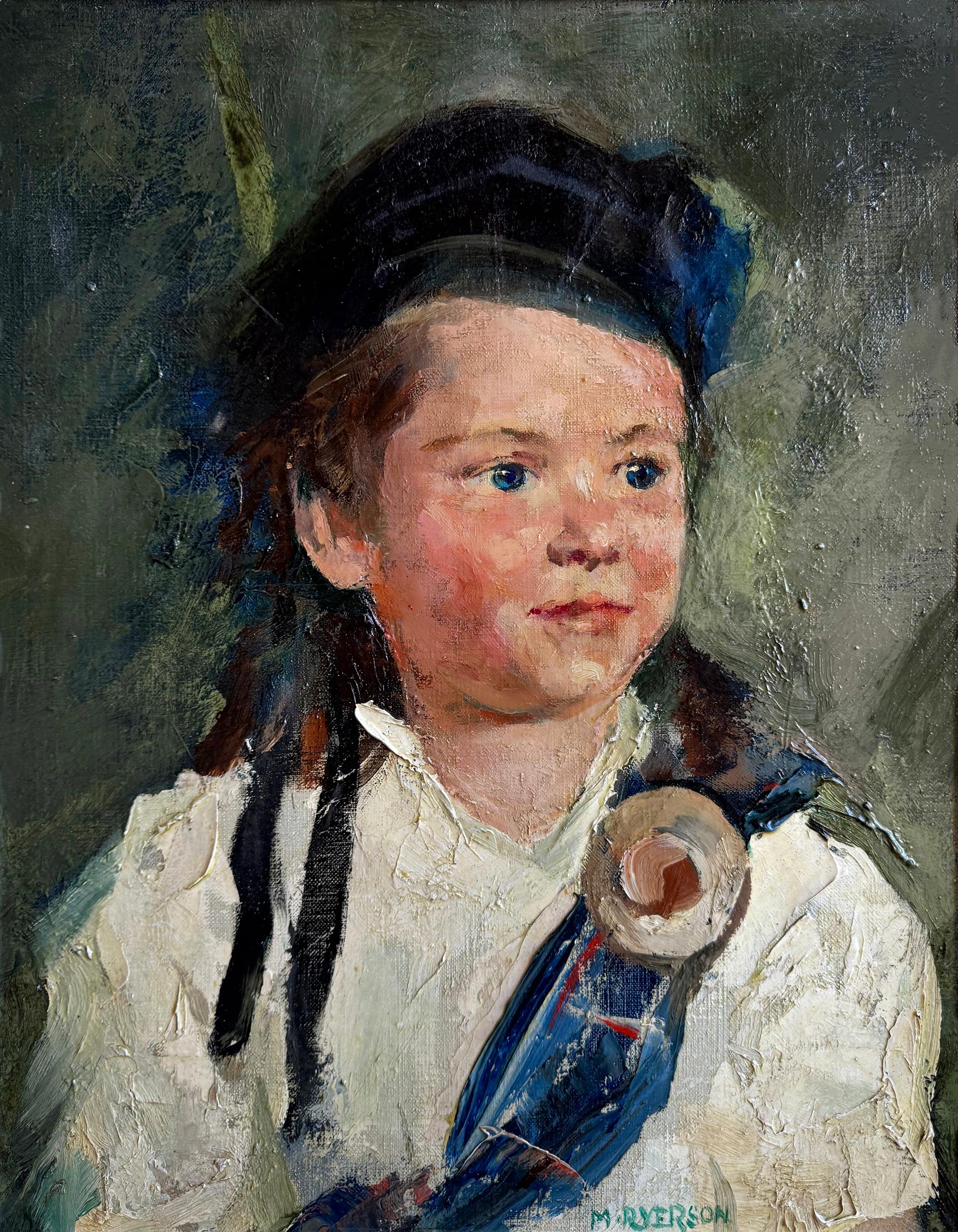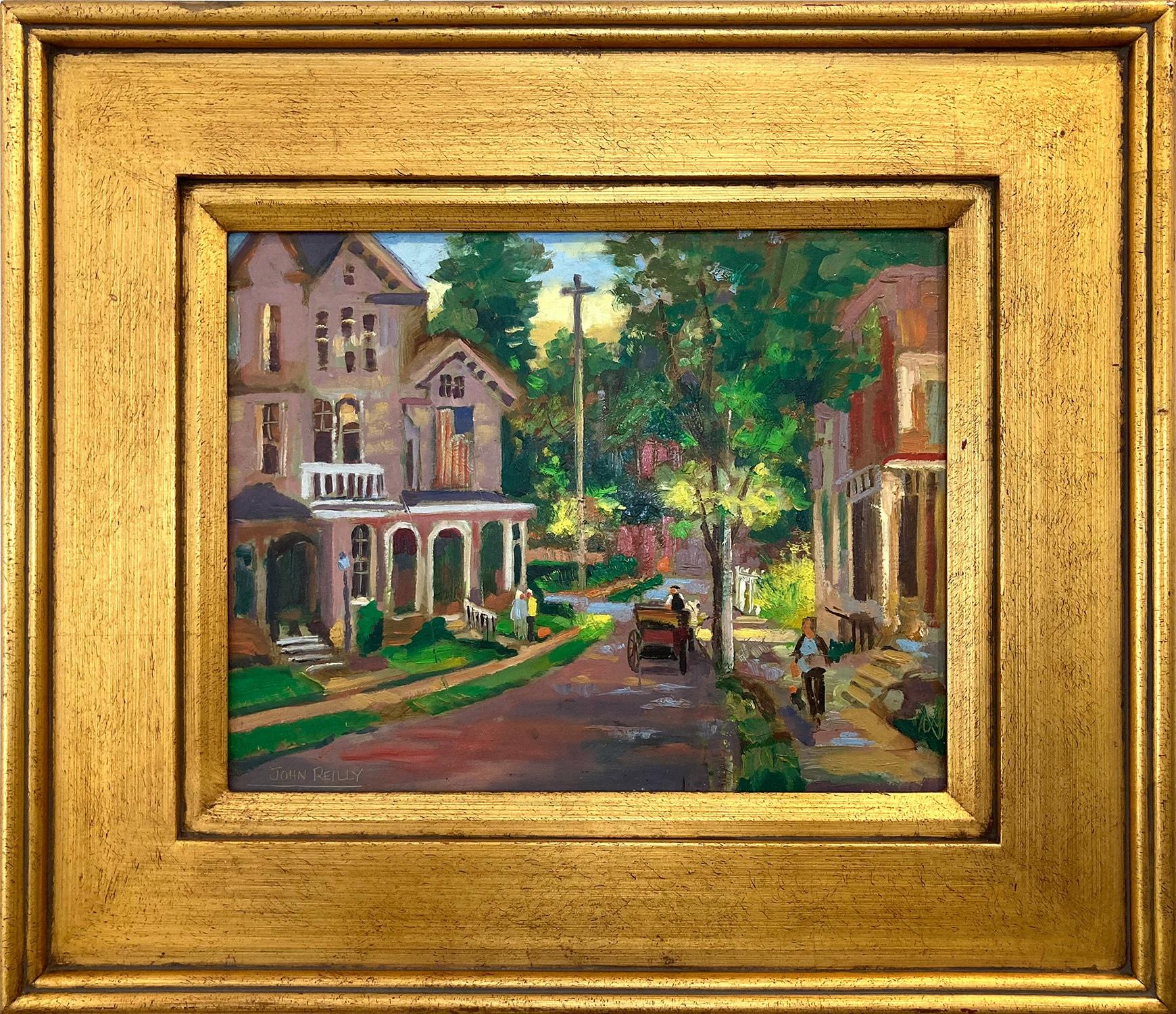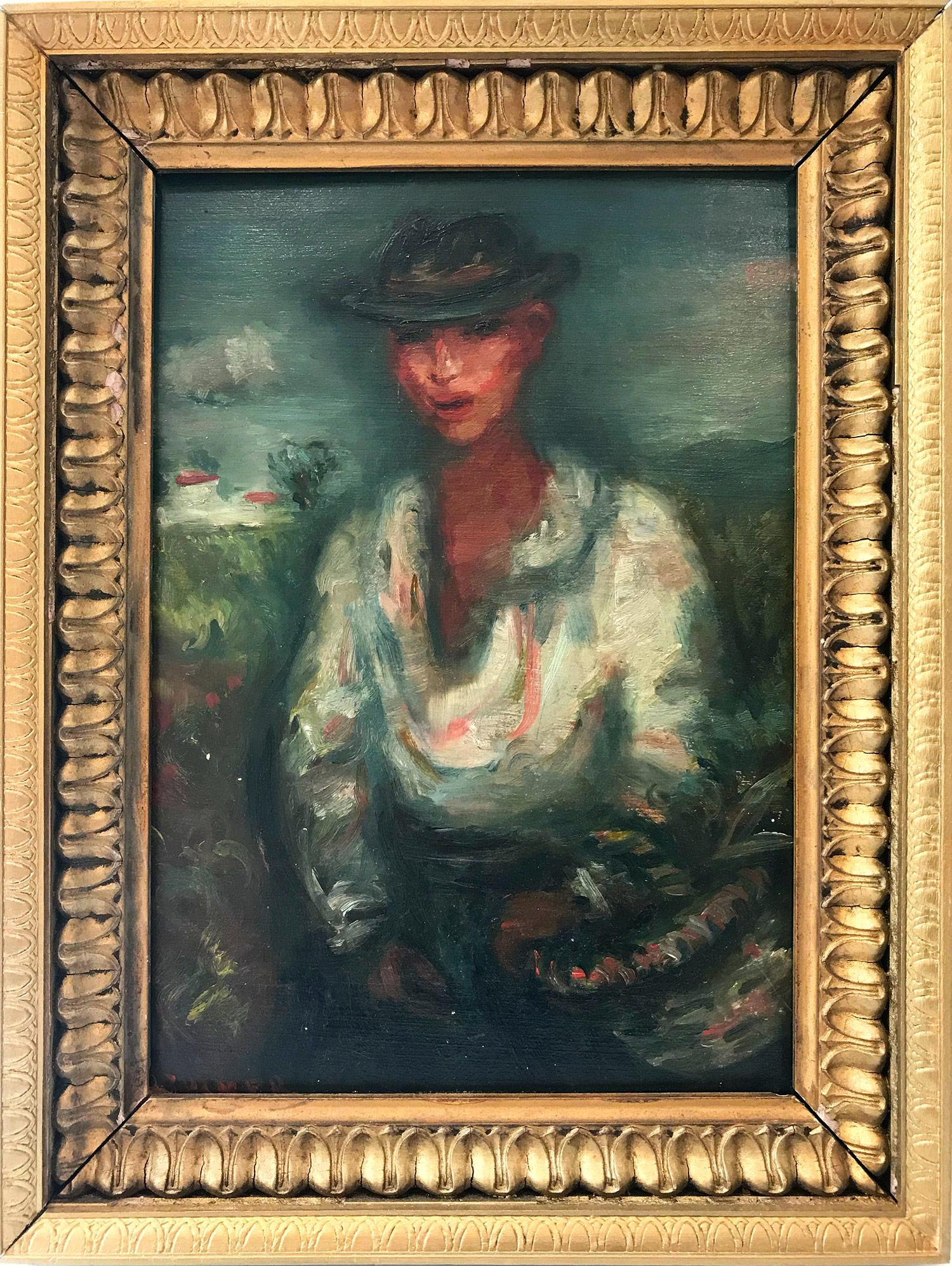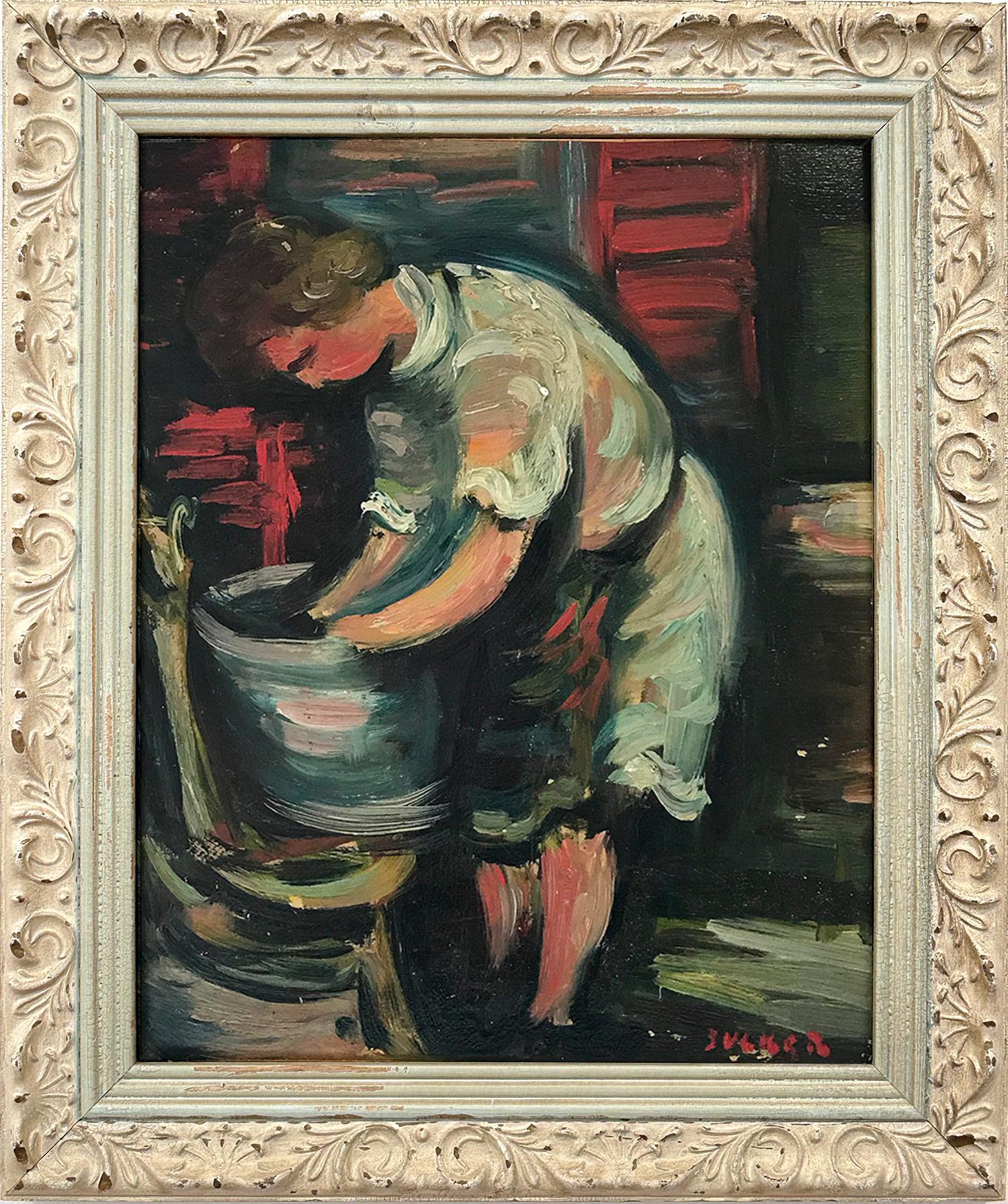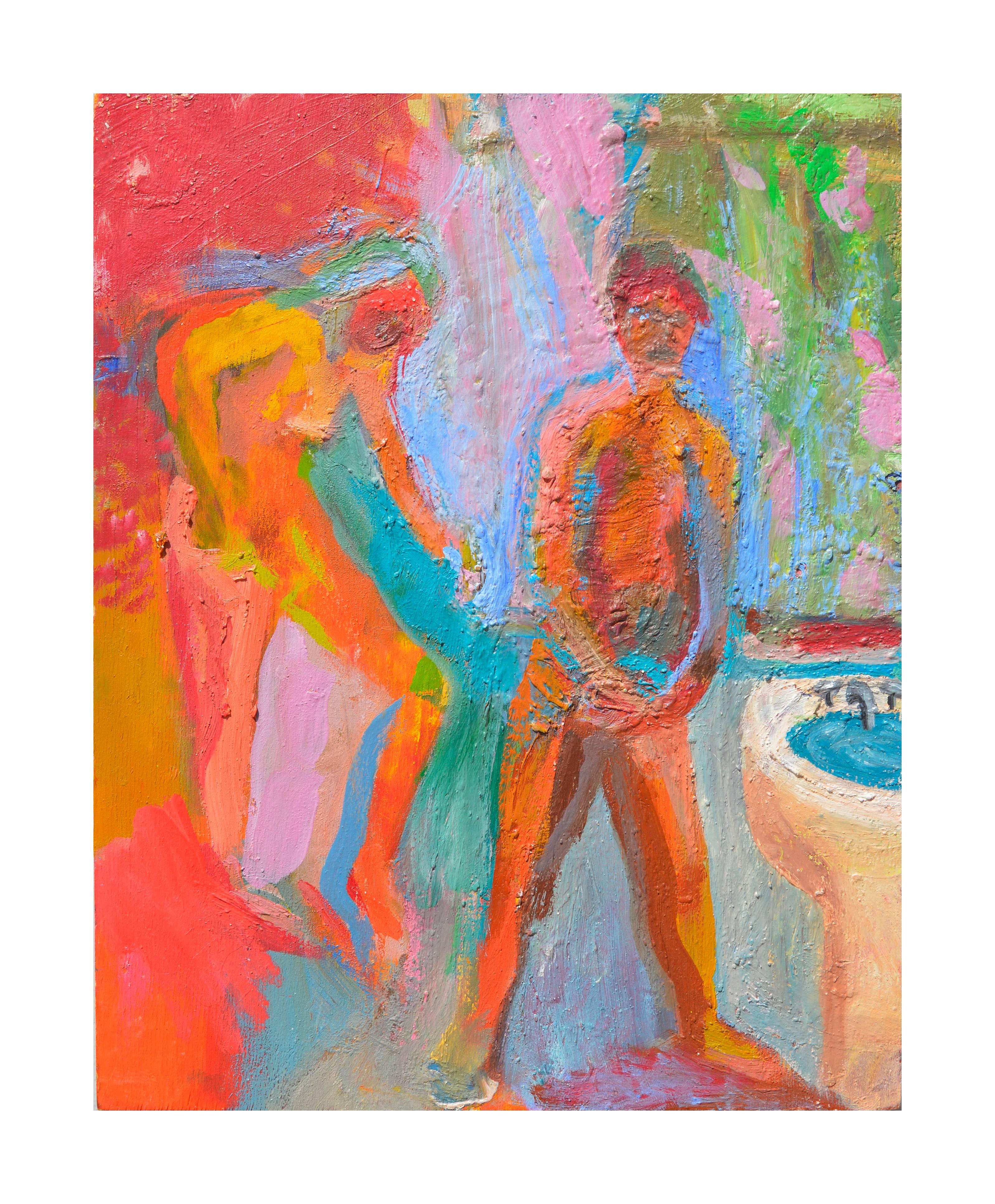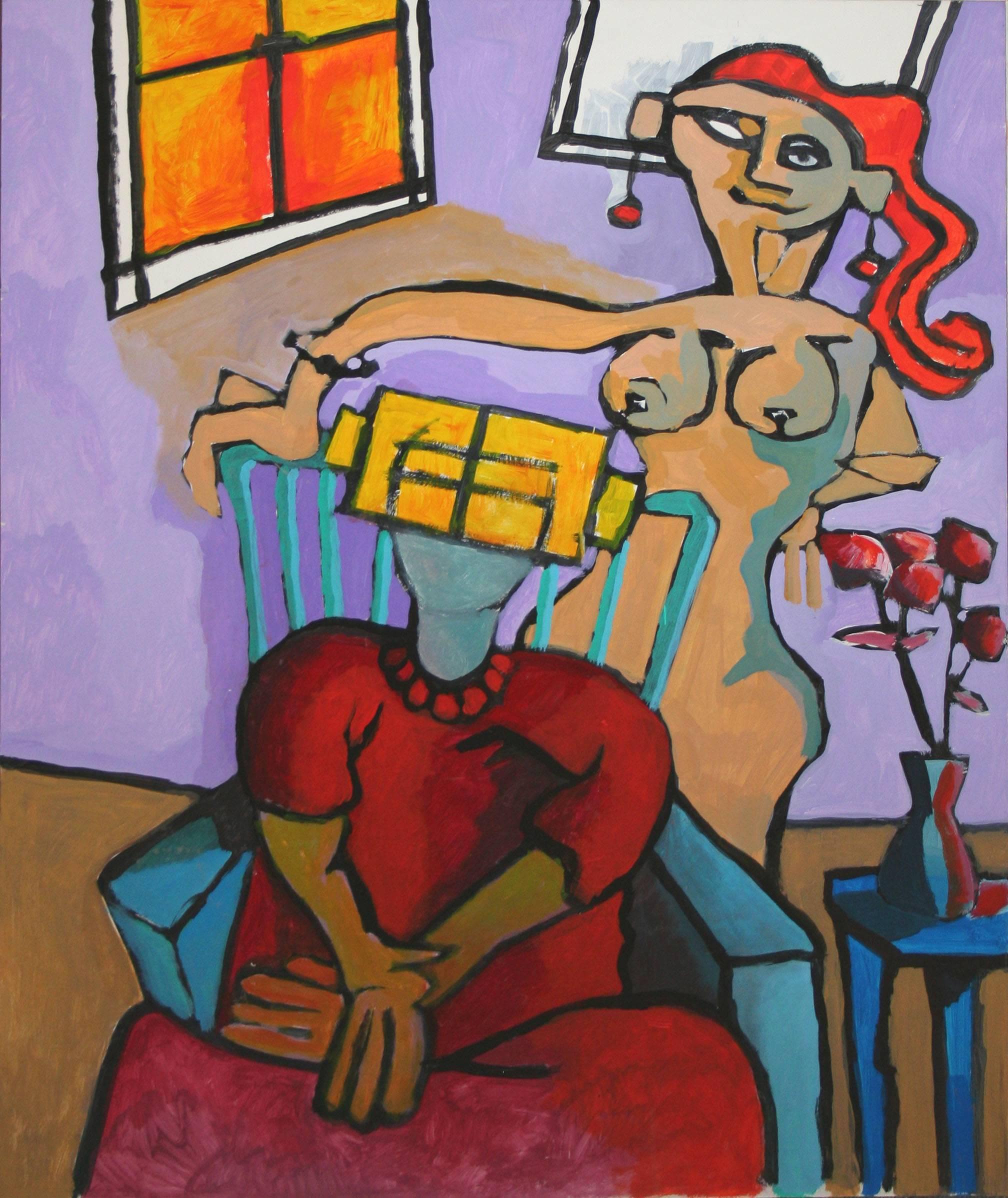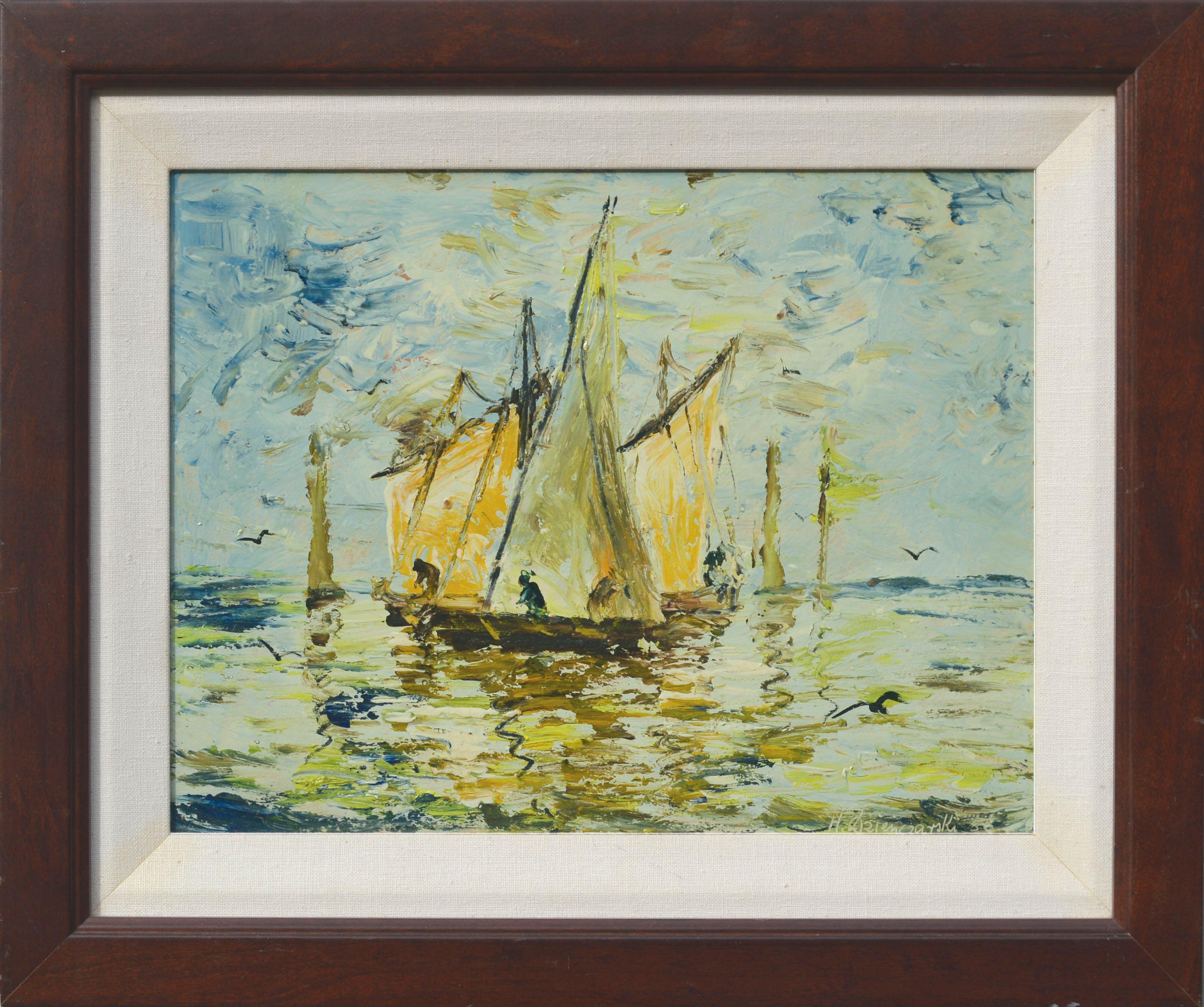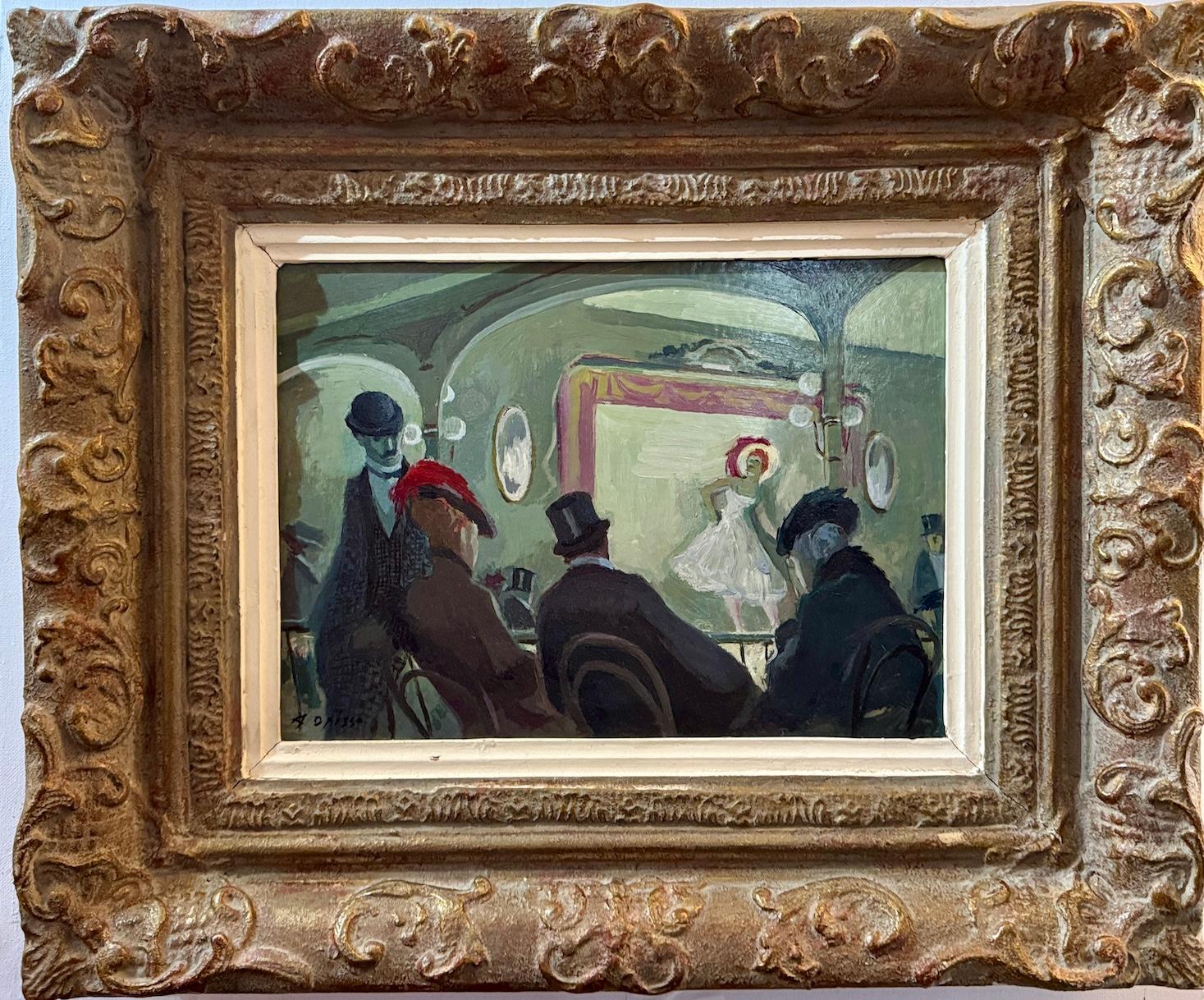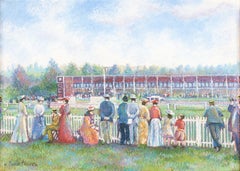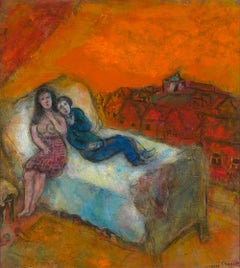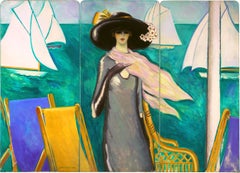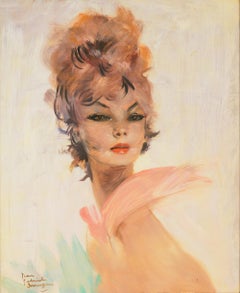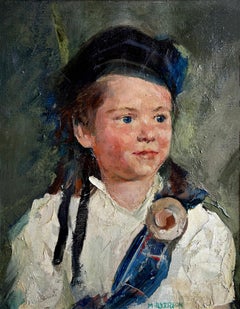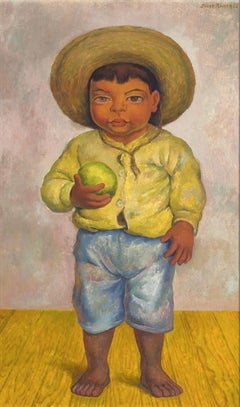
Niño Indígena Con Pelota By Diego Rivera
View Similar Items
Diego RiveraNiño Indígena Con Pelota By Diego Rivera1935
1935
About the Item
- Creator:Diego Rivera (1886-1957, Mexican)
- Creation Year:1935
- Dimensions:Height: 47.38 in (120.35 cm)Width: 31.5 in (80.01 cm)Depth: 1.88 in (4.78 cm)
- Medium:
- Movement & Style:
- Period:
- Condition:
- Gallery Location:New Orleans, LA
- Reference Number:Seller: 31-72001stDibs: LU18612550242
Diego Rivera
Known all over the world for his colossal murals, Diego Rivera was one of the leading artists of the 20th century. The Guanajuato, Mexico-born painter’s works adorn the interiors of many public buildings throughout his native country, including the Cortés Palace in Cuernavaca, the National School of Agriculture in Chapingo and the Ministry of Public Education in Mexico City. (Rivera’s family moved to Mexico City in 1892, and he later lived and worked in Mexico’s capital with his third wife, fellow Mexican artist Frida Kahlo.)
Rivera expressed Mexican national identity like no one before him. He developed his own style of Cubism, reintroduced fresco painting as a major discipline and was a pioneer of Mexican Muralism. Rivera’s artworks have had a significant impact on the international art world.
At the age of 10 Rivera received a scholarship to study at the Academy of San Carlos in Mexico City. When he was 21, the governor of Veracruz provided the artist with a grant to study in Europe. He began his studies abroad in Spain, but ended up settling in Paris in 1909, where he befriended Spanish artist Pablo Picasso and esteemed French painter Georges Braque. Picasso's Cubist paintings were an inspiration for him — in his own work, Rivera adopted elements of Cubism, a revolutionary art movement for European culture. The painter later developed an admiration for the work of Postimpressionist artists such as Cézanne, but Renaissance paintings — and Italian frescoes, generally — had a monumental influence on the work that followed.
In 1921, Rivera returned to Mexico to work with social realist painter David Alfaro Siqueiros. In the wake of the Mexican revolution, they shared a vision of turning the interior of public buildings into a canvas for exploring concepts associated with national identity and to express sympathy for the revolution.
In 1930, Rivera traveled to the United States, where he examined modern industry and issues facing the working class in commissioned pieces at the California School of Fine Arts in San Francisco, the Detroit Institute of Arts and Rockefeller Center in New York City. For the latter, Rivera’s Man at the Crossroads outraged his sponsors owing to its expression of leftist sentiment — it featured a portrait of Russian revolutionary Vladimir Lenin.
After Rivera refused to remove Lenin from the fresco in the lobby of the RCA building in Rockefeller Center, the artist’s sponsors had the work destroyed. Rivera later repainted the composition in a mural in Mexico, relying on photographs by Lucienne Bloch — his unpaid assistant on the Rockefeller project — that she had covertly taken before the painting was destroyed.
It was the suggestions of artist George Biddle, who had studied with Rivera and was influenced by the Mexican Muralists movement, that helped lay the groundwork for the Public Works of Art Project, which was included as part of Franklin Delano Roosevelt’s New Deal.
When Rivera died in 1957 he left unfinished a grandiose mural on the history of Mexico for the National Palace in Mexico City.
More From This Seller
View All20th Century Post-Impressionist Landscape Paintings
Oil Pastel, Cardboard
20th Century Post-Impressionist Figurative Paintings
Canvas, India Ink, Oil
20th Century Post-Impressionist Figurative Paintings
Canvas, Oil, Panel
20th Century Post-Impressionist Figurative Paintings
Oil, Panel
Early 20th Century Post-Impressionist Figurative Paintings
Oil, Panel
20th Century Post-Impressionist Figurative Paintings
Canvas, Oil
You May Also Like
21st Century and Contemporary Post-Impressionist Animal Paintings
Board, Oil
21st Century and Contemporary Post-Impressionist Landscape Paintings
Board, Oil
1920s Post-Impressionist Portrait Paintings
Canvas, Oil, Board
21st Century and Contemporary Post-Impressionist Landscape Paintings
Oil, Board
Late 20th Century Post-Impressionist Landscape Paintings
Oil, Board
Mid-20th Century Post-Impressionist Figurative Paintings
Oil, Board
Recently Viewed
View AllRead More
Paul Revere Crafted This Silver Coffee Pot 250 Years Ago
Perhaps best known as a Revolutionary War hero, Revere was also an accomplished silversmith, and this pot is now available on 1stDibs.
Degas Portrayed These Exuberant Ukrainian Dancers with ‘Orgies of Color’
Discovered in Parisian cabarets, the performers reenergized the artist’s practice.
